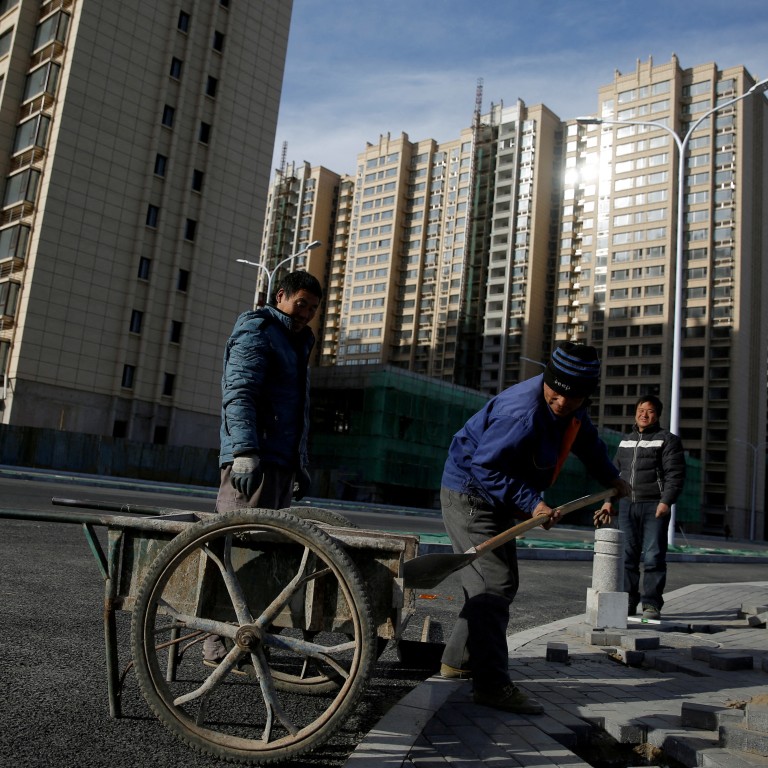
China manufacturing: ‘bombed-out’ exports in August see manufacturing stay in contraction for fifth straight month
- China’s official manufacturing purchasing managers’ index (PMI) rose to 49.7 in August from 49.3 in July, while the non-manufacturing gauge fell slightly to 51
- Persistent economic downturn prompts Beijing to vow more support will come, a month after unveiling measures to revive the private sector and loosen the reins on real estate
China has vowed to further step up funding support for the private sector as manufacturing activities showed little sign of strengthening this month, despite Beijing having ratcheted up support for its ailing economy since late July.
Within the official manufacturing PMI, the new-orders subindex jumped into expansionary territory as it reached 50.2, up from 49.5 a month earlier, while the new-export-orders subindex remained low at 46.7 in August, up slightly from 46.3 in July.
“This must be mainly domestic orders, as the export-orders series remains bombed out. But that, at least, provides some encouragement about the near-term outlook,” said Robert Carnell, an economist with investment bank ING.
Manufacturers’ business expectations, however, improved slightly last month, with the number rising to 55.6 from 55.1 in July.
“The survey also showed that insufficient market demand is still the major problem confronting companies, and it will take time to consolidate the foundation for a recovery in the manufacturing sector,” said Zhao Qinghe, a senior statistician with the NBS.
Leadership has responded since late July with measures to revive the private sector, encourage more household consumption and prop up foreign investors since late July.
Beijing has also started to loosen the reins on the real estate sector, which has been the biggest drag on the economy and has further deteriorated the finances of local governments.
Non-manufacturing PMI fell by 0.5 points to 51 in August, after the index moderated for four consecutive months with the overall economic slowdown, the NBS added.
The construction subindex, which has been partly affected by the ongoing property crisis, stood at 53.8, versus 51.2 in July.
“A further slowdown in the service-sector recovery, coupled with a slight moderation in manufacturing contraction, does not amount to any meaningful improvement to the overall economic backdrop,” Carnell said.
The readings in August indicated no real improvement in total, though the moderation in the pace of decline in manufacturing PMI “may be of some comfort to those of a sunny disposition”, he added.
Younger Chinese are taking over family factories. Can they save the industry?
“Overall, though, both series seem to be converging on a point close to 50, consistent with an economy that is neither expanding nor contracting,” he said. “Things could be worse. But markets are not likely to take too much comfort from this set of data.”
In their latest move to prop up economy, China’s financial regulators said on Wednesday that they would step up financial support for private companies, while speaking at a meeting with major financial institutions and private companies, including real estate developers.
They vowed to use more financial tools to offer funds to support the private sector, especially in science and technology, high-end manufacturing and low-carbon sectors, according to a statement by the People’s Bank of China.
“Financial regulators will take forceful measures to create positive conditions for private enterprises. … and treat all sorts of business ownership enterprises on a fair and equal basis,” said central bank governor Pan Gongsheng.



